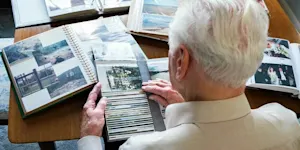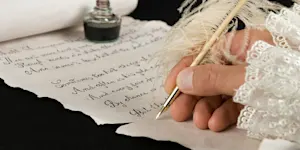What Makes This Word Tick
Coffer is a charming little noun that packs a bit of mystery and antiquity. Typically, it refers to a box or chest, often one designed to hold money or valuables. Its allure lies in the image it conjures—an old wooden chest tucked away in some forgotten corner, just waiting to be dusted off and opened. Who knows what treasures could lie inside?
If Coffer Were a Person…
Coffer might be that grandparent who seemed stern but has a twinkle in their eye and a belly full of secret stories. They might appear traditional, but dig a little deeper, and you'll uncover layers of fascinating history, unexpected humor, and perhaps a few valuable life lessons.
How This Word Has Changed Over Time
Originally, coffers were functional pieces of furniture, practical yet grand. Over the years, the word has evolved metaphorically, often used to describe funds or resources a person or organization has in reserve. Today, you might hear someone talking about "filling the coffers" to mean increasing financial reserves, rather than just tightening the latch on a wooden box.
Old Sayings and Proverbs That Use Coffer
While there aren't any well-tread proverbs specifically about coffers, the imagery of a coffer being emptied or filled often sits quietly in others. The concept of keeping one's coffers full aligns with the age-old proverb "save for a rainy day."
Surprising Facts About Coffer
A coffer doesn’t just refer to treasure chests; it can also mean the sunken panels often found in ceilings of classical architecture—those detailed squares staring down at you from above in museums and historic buildings. Imagine considering the Sistine Chapel’s ceiling as a glamorous coffer holding the treasures of art!
Out and About With This Word
In everyday language, coffers might come up in discussions about city budgets and nonprofit funding. You'll find reports about municipalities managing their coffers or philanthropic groups donating to "replenish the coffers" of a charitable cause.
Pop Culture Moments Where Coffer Was Used
In British comedies, you might hear references to the royal coffers or the palace coffers being raided. Such phrases tap into the audience's imagination, conjuring images of lavish, opulent vaults slowly being bled dry through comedic misadventures.
The Word in Literature
Coffer often appears in historical novels, particularly those set in times of piracy or medieval courts. Envision a story where a young hero discovers an ancient coffer holding secrets of the past or a quest centered around overthrowing a kingdom by depleting its coffers.
Moments in History with Coffer
Think of the construction of the Great Wall of China or the grand cathedrals of Europe—immense projects that would have seen the ebb and flow of national coffers as funds were strategically gathered, used, or depleted over time.
This Word Around the World
Globally, the symbolism of a coffer varies. In France, "coffre" carries a similar meaning, representing both the box and the funds inside. Meanwhile, in Turkey, the "hazine" (treasury) can be a coffer of cultural heritage just as much as a financial storehouse.
Where Does It Come From?
Coffer stems from the Old French "cofre," and further back to the Latin "cophinus," meaning a basket. The journey of this word from baskets to boxes to budgets spotlights how language travels and picks up nuances along the way.
How People Misuse This Word
Sometimes, people confuse coffers with safes, which are more modern and focused on security. Coffers echo a broader function, hinting at wealth management rather than just locking things away.
Words It’s Often Confused With
Safe: More focused on security; coffers are about resources.
Vault: Usually implies a fortified storage space; a coffer is simpler.
Chest: A chest is a more general storage item, while a coffer implies value or funds.
Additional Synonyms and Antonyms
Synonyms include strongbox, treasury, and chest. Antonyms would revolve around words like expenditure or poverty, as they denote the opposite of stored resources.
Want to Try It Out in a Sentence?
"The city council voted to allocate additional funds to the public library, pledging that their cultural investments would enrich the community's coffers of knowledge for generations to come."
















